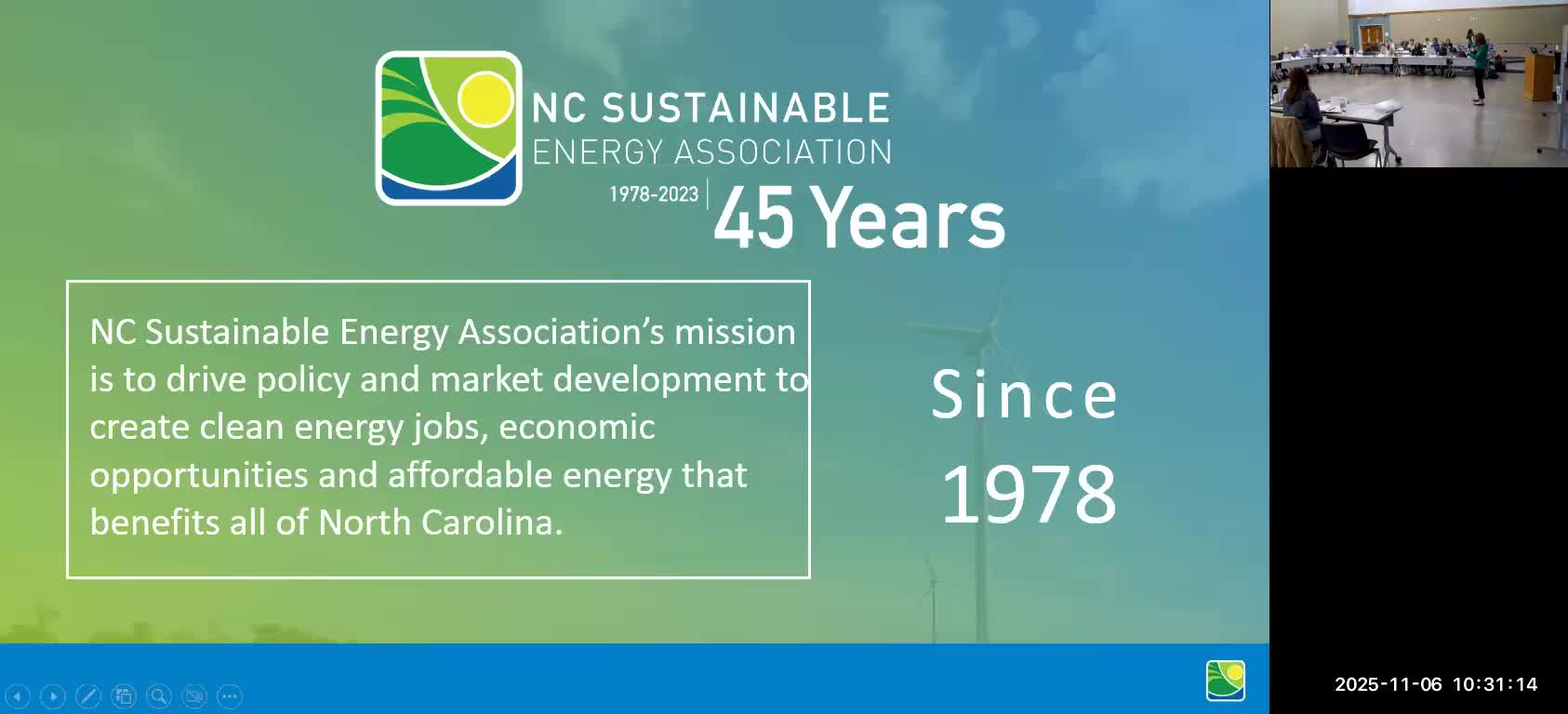Outside experts tell Chatham County: state utility decisions, solar rules and data‑center load shape local climate options
Get AI-powered insights, summaries, and transcripts
Subscribe
Summary
State energy and utility policy decisions — from property‑tax treatment for solar to how utilities plan for new load — are reshaping the choices available to Chatham County, presenters said at a November retreat.
At the retreat, Josh Brooks of the North Carolina Sustainable Energy Association laid out how state regulatory and market shifts affect county‑level climate strategy.
Brooks described three dynamics shaping North Carolina’s energy transition: rapid solar deployment over the last decade, recent state legislative changes that removed a legislatively‑set 2030 carbon target and created new rules for utility cost recovery, and a new focus at the Utilities Commission on managing speculative load growth — especially data centers. "Solar projects are being installed rapidly," Brooks said, noting the industry’s scale and work to defend incentives and local fiscal relationships. He warned the board that some policy changes are pushing developers and counties to reframe fiscal expectations around property tax revenue from utility‑scale solar projects.
Brooks also discussed how utilities are proposing resource plans that slow near‑term solar deployment and lean more heavily on natural gas in some scenarios, and described efforts by NCSEA to intervene at the Utilities Commission to advocate alternative resource plans and guardrails such as fuel‑cost risk sharing.
Commissioners used the session to ask what is actionable at the county level. Presenters recommended a focus on land‑use tools, incentives for resilient or equitable development, and near‑term programs the county can influence directly (e.g., municipal building standards, community solar facilitation, green‑bank partnerships). Brooks and others emphasized that county actions on zoning, permitting, and community resilience can both protect local fiscal health and improve equity even when larger utility decisions occur at the state level.
The presentation flagged two concrete policy items for local attention: clarifying county positions on solar siting and tax treatment, and preparing to participate in regional resource‑planning dockets that affect wholesale procurement and rate design.
